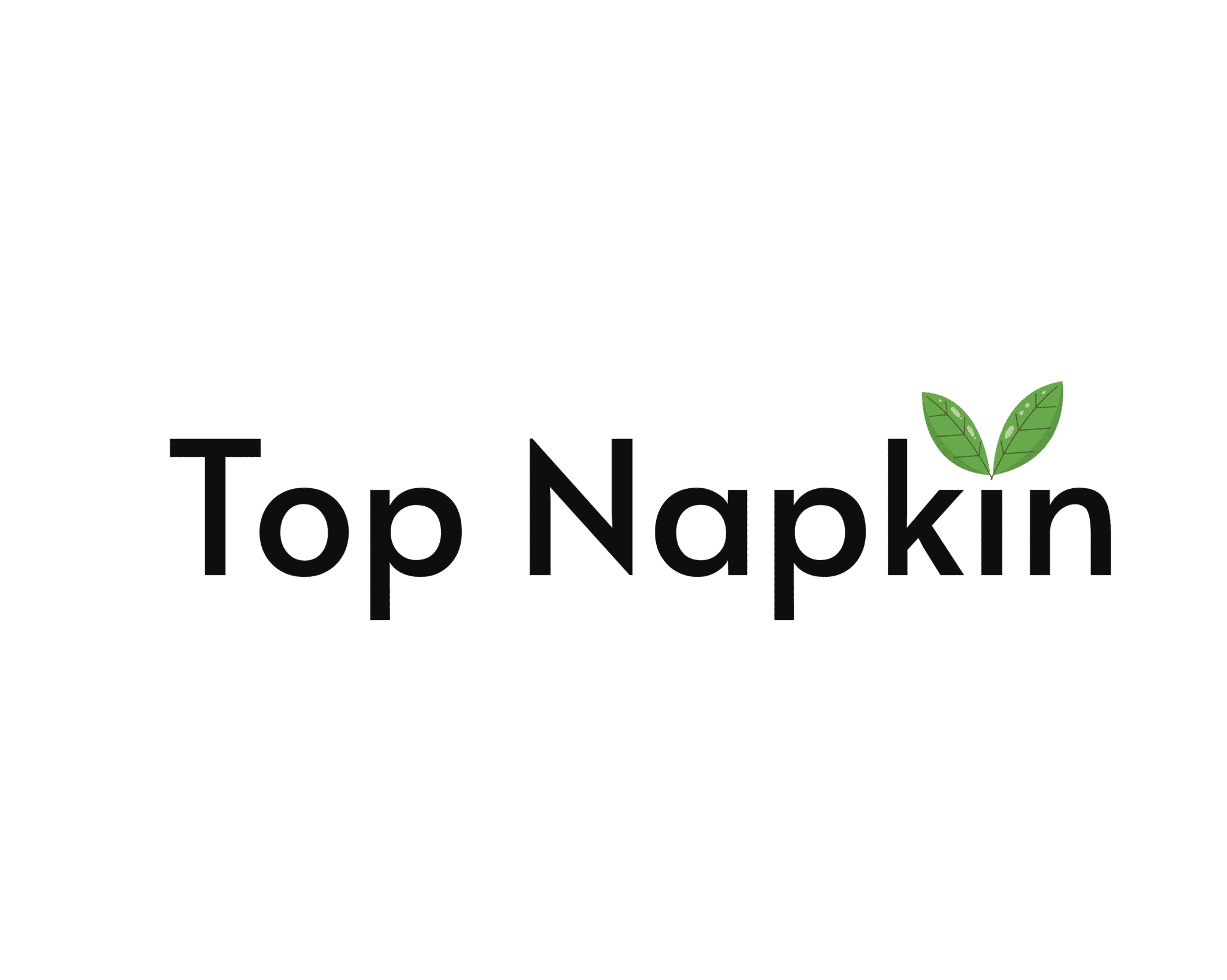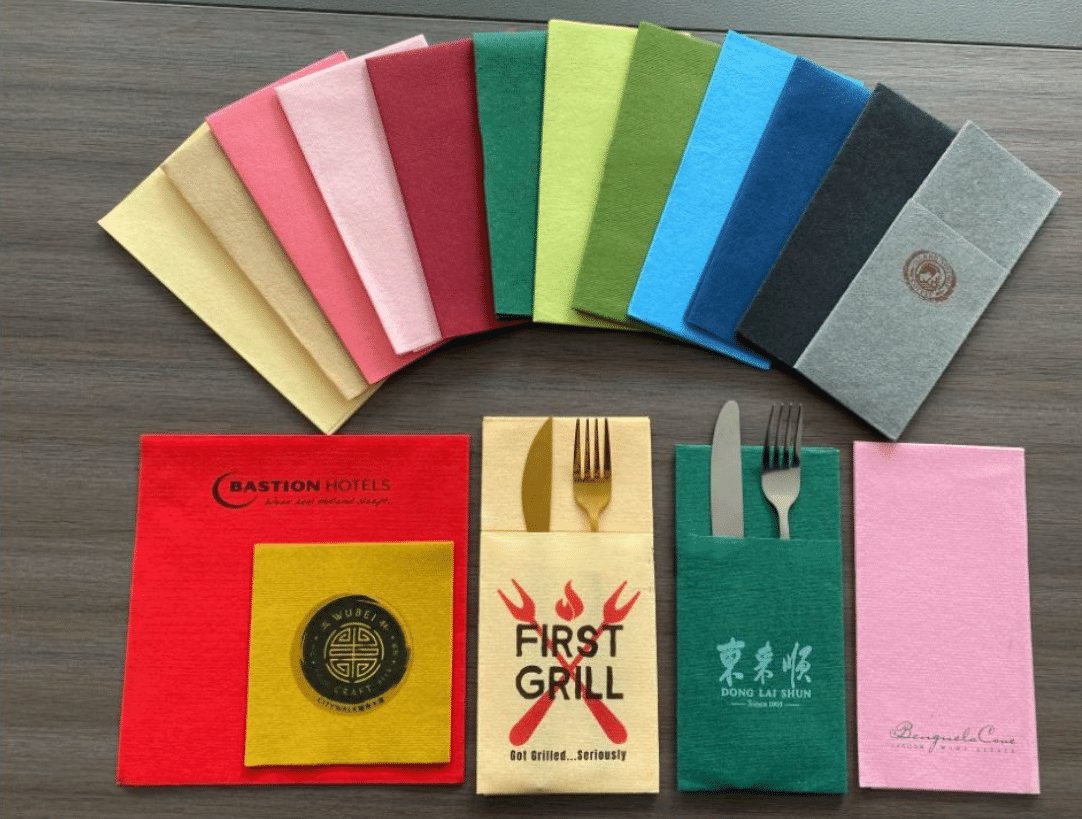For restaurant owners, napkin distributors, and wholesalers, providing soft and luxury linen like napkins can elevate the dining experience and leave a lasting impression on customers. In this guide, we’ll explore valuable tips on how to achieve that soft touch for your napkins, all while considering environmental sustainability.
I. Types of Linen Like Paper (Raw Material):
In the industry, various classifications of dust-free paper cater to different usage scenarios:
- 0609 Wood Pulp Polyester Composite Spunlace Cloth airlaid Paper: Comprising 50% wood pulp and 50% polyester, this option is known for its low chipping, high absorption capacity, and strong decontamination ability, making it ideal for precision metal surface wiping and SMT applications.
- Polyester and Viscose Composite Spunlaced airlaid Paper: Made from viscose and polyester, this variant offers a soft surface and excellent dust removal capabilities, suitable for wiping precision machinery parts.
- Melt-Blown Non-Woven Fabric: Crafted from polypropylene fiber, this fabric excels in absorbing organic solvents, making it an excellent choice for wiping precision parts and removing screen printing ink.
- Microfiber Non-Woven Fabric: Similar to 0609 airlaid paper, it features low chipping, high absorption capacity, and strong decontamination properties, making it suitable for precision tasks.
- Roll Specifications: airlaid paper is available in paper roll specifications, making it convenient for workshops and equipment maintenance. It ensures cleanliness and minimizes environmental pollution.
II. The Secret Recipe to Soften Linen like Paper
Choose a Polyester Blend
If you’re aiming to soften your linen-like napkins, consider incorporating a polyester blend during the production process. While linen-like napkins are known for their elegant appearance, they tend to be firmer than their cloth-like counterparts. Adding polyester can improve the softness of the napkins. However, it’s important to note that this modification may render them non-disposable, as polyester is not as biodegradable as traditional paper. This trade-off between disposability and softness is a crucial consideration.
The Impact of Polyester Blended Linen like Paper
Environmental Impact: Polyester is a synthetic material derived from petroleum-based sources, and its production has a significant environmental footprint. Manufacturing polyester generates greenhouse gas emissions, consumes non-renewable resources, and contributes to pollution. Therefore, using polyester in napkins can undermine efforts to reduce the environmental impact of disposable products.
Limited Biodegradability: Polyester is not biodegradable. When incorporated into napkins, it adds to the growing issue of plastic waste in landfills and oceans. Napkins made with polyester blends can persist in the environment for extended periods, contributing to plastic pollution.
Non-Recyclable: Napkins containing polyester are generally not recyclable, making them challenging to dispose of sustainably. These napkins cannot be processed through standard recycling systems, leading to more waste.
Resource Intensive: Polyester production requires significant energy and water resources. Choosing polyester blends over eco-friendly alternatives can exacerbate resource consumption and contribute to water scarcity and energy depletion issues.
Potential Health Concerns: Some polyester blends may contain chemicals and additives that can raise health concerns, particularly if they come into contact with food. Choosing natural and sustainable materials for napkins minimizes potential health risks.
Given these reasons, many individuals and businesses are increasingly opting for eco-friendly alternatives that prioritize sustainability, such as plastic free paper napkins made from 100% original wood pulp. These alternatives offer softness and elegance while minimizing the negative environmental impact associated with polyester blends.
III. Pripritize Sustainable and Disposable Cloth like Napkins
Sustainability is a critical concern in today’s world. By sticking to a polyester-free paper napkins, you align your business with environmentally conscious practices. Linen-like napkins can be made softer without relying on synthetic materials. Consider using sustainable and biodegradable options that not only offer a luxurious feel but also reduce the environmental impact.








